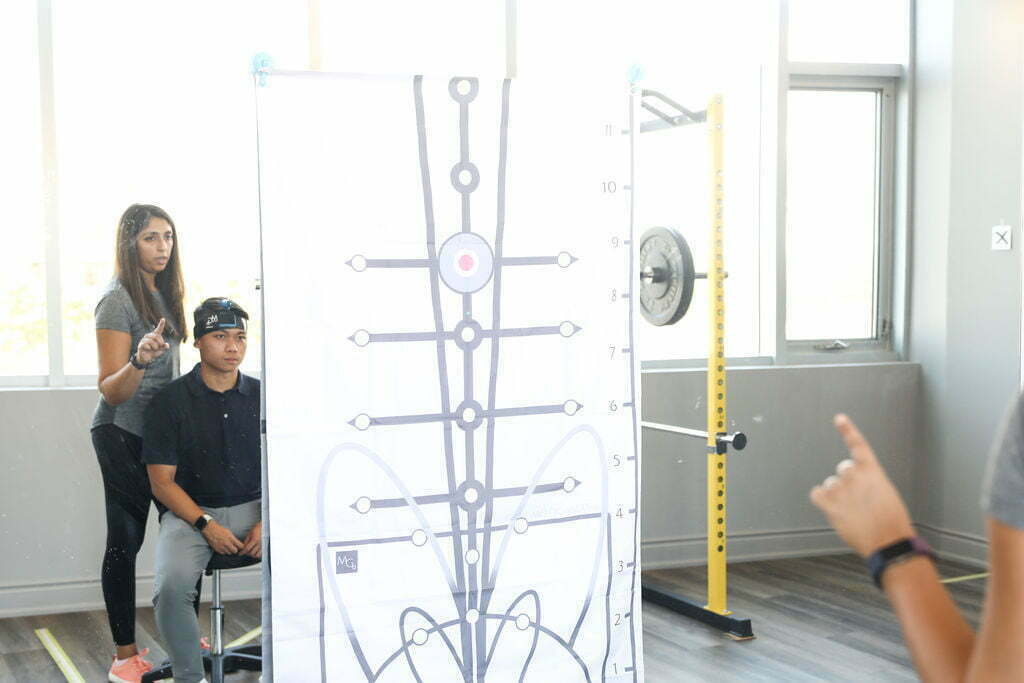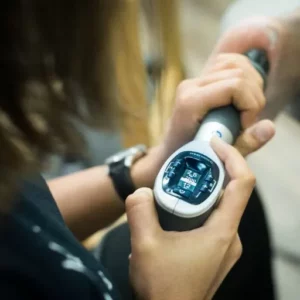
Concussion Rehabilitation Therapy & Vestibular Rehabilitation are offered at Triangle Physiotherapy locations in Toronto, Mississauga, North York, and Oakville. Many of our physiotherapists have specialized training in these conditions.
Vestibular Rehabilitation
Vestibular Dysfunction or Vestibular System Disorders are more common than most people think.
Quick facts:
1) A recent study has indicated that as many as 35% of Americans over 40 years old (70 million people) have experienced some form of vestibular dysfunction (Agrawal et al, 2009).
2) 80% of people over 65 years have experienced dizziness and BPPV (Benign Paroxysmal Positional Vertigo) is the cause of approximately 50% of dizziness in older persons (Parnes et al, 2003).
Vestibular Dysfunction or Vestibular System Disorders may involve a number of symptoms including:
a) Dizziness
b) Vertigo (sensation of spinning)
c) Nausea
d) Sense of imbalance or unsteadiness
e) Poor gaze stability
f) Vision disturbance
WHAT IS THE VESTIBULAR SYSTEM?
- Comprises five sensory organs that provide your brain with information about head position and movements including head rotation, linear movements and static positions of the head relative to gravity
- Five sensory organs including 3 semicircular canals and 2 otoliths
VESTIBULAR REHABILITATION INVOLVES:
- A detailed assessment of the Oculomotor System, Vestibulo-ocular System, Motion Sensitivity Testing, and a BPPV (Benign Paroxysmal Positional Vertigo) assessment
Your Vestibular Physiotherapist will then determine:
- The cause of your symptoms
- Appropriate treatment including in-clinic physiotherapy and home exercise program as indicated
- Whether referral to another health professional is indicated
Please ask your Physiotherapist for more information regarding Vestibular Rehabilitation.
Our More Locations
Physiotherapy Etobicoke | Physiotherapy Oakville | Physiotherapy North York | Physiotherapy Toronto | Physiotherapy Lawrence Park | Physiotherapy Mississauga | Physiotherapy Queens Quay | Physiotherapy Mississauga Erin Mills | Physiotherapy Liberty Village
Visit the following links for more information:
Vestibular Disorders Association:
Vestibular Rehabilitation for Unilateral Peripheral Vestibular Dysfunction – Cochrane Review:
Hillier, S.L., & McDonnell, M. (2007). Vestibular rehabilitation for unilateral peripheral vestibular dysfunction. Cochrane Database of Systematic Reviews, 4. DOI:10.1002/14651858.CD005397.pub2.
http://www.bibliotecacochrane.com/pdf/CD005397.pdf
References
Agrawal, Y., Carey, J.P., Della, Santina, C.C., Schubert, M.C., & Minor, L.B. (2009). Disorders of balance and vestibular function in US adults. Arch Intern Med, 169(10), 938-944.
Parnes, L.S., Agrawal, S.K., Atlas, J. (2003). Diagnosis and management of benign paroxysmal positional vertigo (BPPV). CMAJ, 169, 681–693.
FAQs
What is Vestibular Therapy?
Vestibular Therapy is a form of therapy that primarily uses exercises to help treat problems associated with vestibular, or inner ear, disorders. Problems with these structures can lead to symptoms such as dizziness, nausea, tinnitus (ringing in the ears), light-headedness, and double-vision. Since each person’s conditions is slightly different, your Physiotherapist will create a specific exercise program that will help best treat your condition. While it might seem odd that exercises are used to treat problems associated with the inner area, these exercises are aimed at retraining balance and proprioception, which should help prevent falls.
What conditions will benefit from Vestibular Therapy?
Some conditions which will benefit from Vestibular Therapy are:
- Benign paroxysmal positional vertigo (BPPV)
- Labyrinthitis and vestibular neuritis
- Meneir’s Disease
- Acousitc neuroma
- Vestibular migraines
- And many more!
What does a typical treatment session look like?
In order to determine what types of exercises you will benefit most from, you will undergo a thorough assessment on your first visit. This assessment will cover many areas, including but not limited to: taking a history of all relevant past medical information, exploring any vision or hearing disorders you might have, noting down all of the medications that you are currently taking, and exploring any falls or episodes of dizziness or light-headedness you might have had.
Once your specific condition is identified, your Physiotherapist will create an exercise program for you to address your areas of weakness. It will involve a supervised exercise program where your balance will be progressively challenged in a controlled, safe environment.
Will I feel better after the first treatment?
The answer to this really depends on your condition. In general, the longer a condition has been present, the longer it takes to resolve. However, your Physiotherapist will give you an expected timeline as to how long it will likely take for you to notice a significant difference, and what your prognosis is.
Will my Vestibular Therapy treatment be covered under my Extended Health Plan (EHP)?
Yes, Vestibular Therapy is classified as Physiotherapy Treatment as it is a form of therapy that Physiotherapists that have taken specialized continuing education courses can administer.



